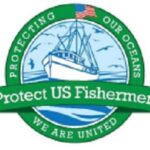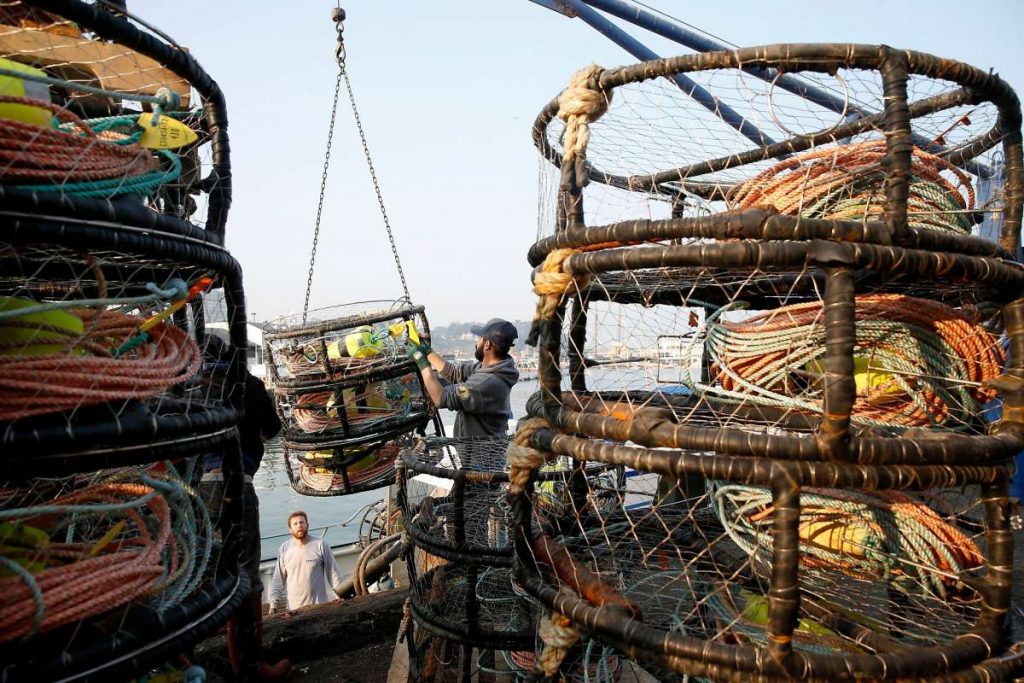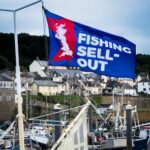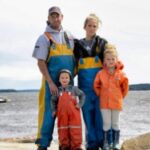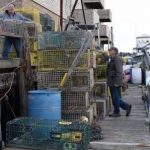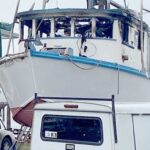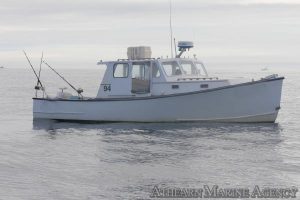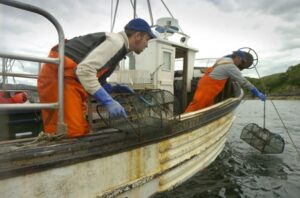Daily Archives: June 16, 2023

BREAKING NEWS: U.S. COURT OF APPEALS RULES IN FAVOR OF MAINE LOBSTERMEN
Today, the U.S. Court of Appeals for the D.C. Circuit ruled overwhelmingly in favor of the Maine Lobstermen’s Association (MLA) in its appeal of a lower court ruling in Maine Lobstermen’s Association v. National Marine Fisheries Service. Following is initial reaction from Patrice McCarron, policy director for the MLA: “When the Maine Lobstermen’s Association (MLA) made the decision to sue the federal government, we knew it wouldn’t be easy, but we refused to go down without a fight. Today’s decision by the U.S. Court of Appeals is an overwhelming victory for lobstering families and the communities that rely on this industry, and it reaffirms what the MLA has been saying all along – the federal government does not have a blank check to use “worst case scenarios” and disregard actual data in its regulation of the Maine lobster fishery. >click to read and comment< 18:48

Federal appeals court sides with lobstermen in whale protection case anchored off New England
A federal appeals court has sided with commercial fishermen who say proposed restrictions aimed at saving a vanishing species of whale could put them out of business. The fishermen and the state of Maine appealed their case to the U.S. Court of Appeals for the District of Columbia Circuit after losing in a lower court. The appeals court said Friday it disagreed with the lower court’s ruling. Maine Gov. Janet Mills, a Democrat, and other Maine politicians have sided with the fishermen, who feel the new fishing restrictions are based on flawed data and are overly punitive. The U.S. lobster fishing industry, worth hundreds of millions of dollars per year, is based largely in the state. “We’re facing rules that are just nonsensical,” said Dave Cousens, a lobster fishermen and past president of the Maine Lobstermen’s Association. “They don’t pass a straight-face test.” >click to read< 15:32
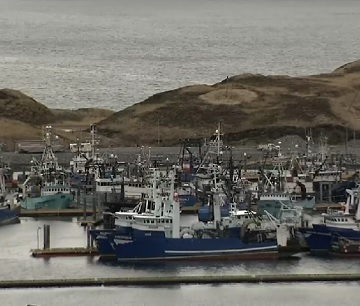
ADF&G discusses where to spend disaster funding for crabbing fisheries
The Alaska Department of Fish and Game hosted a second meeting to discuss how to distribute funds to fisheries that experienced disaster in recent years, with Thursday’s meeting focusing on Bristol Bay red king crab and Bering Sea snow crab fisheries. Much of the discussion centered around the division of payments between the vessel and crew members, with several people calling for 60% to go to the vessel and 40% to the crew, rather than a 70/30 split. “The boat I’m on and have been on for many years, we’re the same on any crab fishery — it’s always 60 to the boat and 40 to the humans,” fisherman Mike Mathisen said. Video, >click to read< 13:40

Commercial Fisherman Michael R. Price of Newport, Oregon, has passed away
Michael “Mikey Who” (as he was known to many) was born on February 25, 1955, in Coos Bay, Oregon to Roy L. Price and Jeanette G. (Bunker) Price. He graduated as an Honor Student from Pacific High School in 1973. That fall he enrolled in SOC at Ashland, Oregon. He attended SOC for 2 years then left to become a full-time commercial fisherman and he never looked back. His first boat was named the Abiquay. He fished for salmon and bottom fish at that time. He and his faithful dog, Quila, became well known on the Oregon and Northern California coast as fine fishermen. They made friends everywhere they traveled. >click to read< 12:08
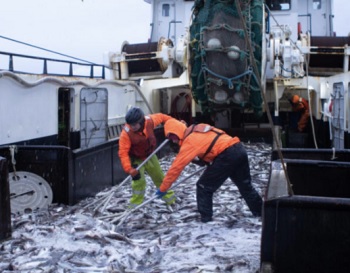
Tons of fish caught in Russia is sold in America, despite import ban
President Joe Biden signed an import ban on Russian seafood last year, but fish valued at several hundred millions of dollars are able to evade the ban by diverting to another another country before arriving on American shores. “There has been a huge loophole where the Russians have been now sending their fish – it’s pollock, it’s salmon, a little bit less crab – to other countries for reprocessing, primarily China,” U.S. Sen. Dan Sullivan told reporters Thursday. The ban was intended to ensure Americans aren’t indirectly financing Russia’s war on Ukraine through their purchases. >click to read< 11:07
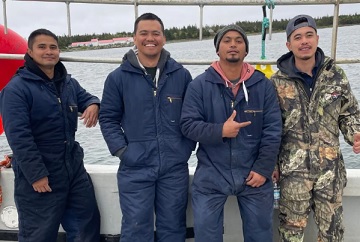
Ocean lifeline saved N.S. lobster pound cut off for 13 days by wildfires
The situation was bleak. The wildfire was moving closer and there were $5 million worth of live lobsters in tanks with no power, no refrigeration, no water circulation and no way to get fuel for the generators. “And the roads are closed. The roads were on fire. So it’s not like we could say, ‘wow, just let us bring a truck in.’ So we had to find a Plan B,” recalled Greg Sutcliffe, plant manager at the Fisherman’s Market lobster pound at Ingomar on the tip of southern Nova Scotia. It was one of two Fisherman’s Market operations on the coast inside the Shelburne County fire evacuation zone. At Ingomar, Plan B was to get there by boat. >click to read< 10:00
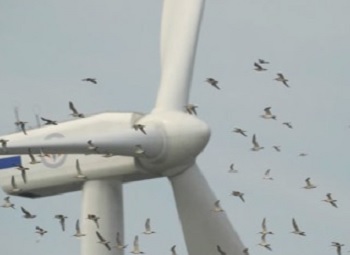
Global Wind Day, Environmental Nightmare
June 15 was Global Wind Day. Its European industry sponsors hope to promote the “power and possibilities” of wind turbines. But beware the Ides of June. Wind turbines have been sold to us as a means of reducing emissions, global warming and climate change. Although there are a lot of wind turbines installed around the world with many more seemingly to come, they have not reduced emissions, warming or climate change. And they offer no chance to do so, even if those things were desirable. Coming eight days short of the 35th anniversary of James Hansen’s Senate testimony that sent the world into global warming panic, it’s clear to anyone who cares to look that emissions have nothing to do with recent warming. >click to read< 08:55

Government Watchdog Agrees to Probe Effects of Offshore Wind Turbines
Following a request from a group of Republican congressmen, the Government Accountability Office (GAO), an independent watchdog, has agreed to conduct an investigation into the environmental effects of offshore wind turbines, which the Biden administration has increasingly supported. The effort was spearheaded by Representative Chris Smith (R., N.J.), who sent a letter to the GAO’s comptroller requesting information about the effects in the North Atlantic Planning Area, which extends from Maine to New Jersey. Of particular interest is whether wind turbines will cause economic and marine-life problems affecting commercial fishing. >click to read< 07:38


































